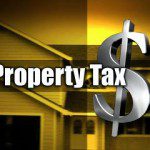Out-of-state investors, business owners and first-time homebuyers could pay far less in property taxes under bills gaining momentum in the Florida Legislature.
 Supporters say the proposals will help attract home buyers and new businesses, boosting the state’s crippled economy. But critics say they will siphon hundreds of millions of dollars away from local governments and could force higher taxes on owner-occupied homes, while still not addressing flaws in the state’s current property tax system.
Supporters say the proposals will help attract home buyers and new businesses, boosting the state’s crippled economy. But critics say they will siphon hundreds of millions of dollars away from local governments and could force higher taxes on owner-occupied homes, while still not addressing flaws in the state’s current property tax system.
“There are thousands of unoccupied homes, beautiful homes, throughout the state of Florida that need a resident,” said Sen. Mike Fasano, R-New Port Richey, a sponsor of the property tax changes. “This is a huge incentive to have people come to Florida and enjoy our beautiful state.”
Fasano said it will also provide tax relief to businesses that are seeing double or triple-digit increases in the value of their property and their taxes.
The changes are included in proposed constitutional amendments (SJR 658, HJR 381) moving in both chambers.
Under the proposals, voters would decide in early 2012 whether to grant owners of investment and commercial property a lower cap on their tax bills through an amendment to the state constitution.
Current law sets the tax ceiling for investors and business owners at 10 percent. The House wants to lower it to 3 percent and the Senate has suggested a 5 percent cap. In both proposals first-time home buyers would also be eligible for an extra tax exemption of 50 percent of the value of their home, not to exceed $200,000.
The proposal represents a second stab at a property tax overhaul in recent years. The Florida Supreme Court threw out a similar proposed constitutional amendment last year for misleading and inaccurate language.
This time around, Florida Realtors lobbyist Trey Price said steps were taken to make the language more precise. For instance, a first-time home buyer is defined as someone who has not claimed a homestead exemption within the last three years. Before, it was unclear how a new homeowner might qualify for that tax cut.
The Florida Realtors are the main proponents of the proposed amendment, saying it will spur interest in home buying.
“We think that offering more protection and predictability for Florida’s investors and business owners is what will keep the state’s economy going,” Price said. He said it’s unfair that investors who want to move to Florida would pay higher taxes on property while they live out of state than current residents. “It’s inequitable,” Price said.
Still, counties and cities remain opposed to the amendment, saying it will result in billions of lost tax revenue. A Senate staff analysis of the proposal says cities and counties could see a $452 million hit on tax revenue just in the 2013-2014 fiscal year alone.
“We don’t believe this goes in the right direction,” said Florida League of Cities lobbyist Amber Hughes. “When you mess with property taxes, when you push down on one segment of the population, it will pop up somewhere else.” Hughes said some counties will face pressure to deliver the same services with less funding and will turn toward millage increases to offset that lost revenue. That means higher taxes for all property owners.
“We have to be careful what we ask for and make sure we don’t have unintended consequences,” said Sen. David Simmons, R-Maitland, who voted for the measure. “Price controls don’t work.”
The tax discounts could be applied retroactively, allowing first-time homebuyers who purchased a house in 2011 to receive the new tax discounts. Other tax changes would go into effect January 2012.
Some lawmakers have questioned why the state isn’t focused on fixing problems with the “Save Our Homes” tax caps. The Save Our Homes law, approved by voters in 1992, caps tax assessment increases at 3 percent per year for owners that receive homestead exemptions because they live in the home.
But over the years, the law has resulted in owners of very similar homes on the same block paying vastly different taxes depending on how long each has lived there. “It has created gross inequities,” said Simmons, who is pushing his own proposal to allow all property owners a 25 percent tax discount.
Meanwhile, the fate of this year’s property tax overhaul is in flux, as the House and Senate now offer differing proposals and negotiations continue between local governments and the Realtors over the right tax cap.
Counties and cities are pushing for a 7 percent cap for investor and business-owned property that would lessen the damage from lost property tax revenue and still provide some tax relief to businesses and investors.
“Right now, we are in negotiations with local governments. They have come out and opposed the bills as currently written. We think they are fair to Florida’s property owners,” Price said.
By Lilly Rockwell
The News Service of Florida


